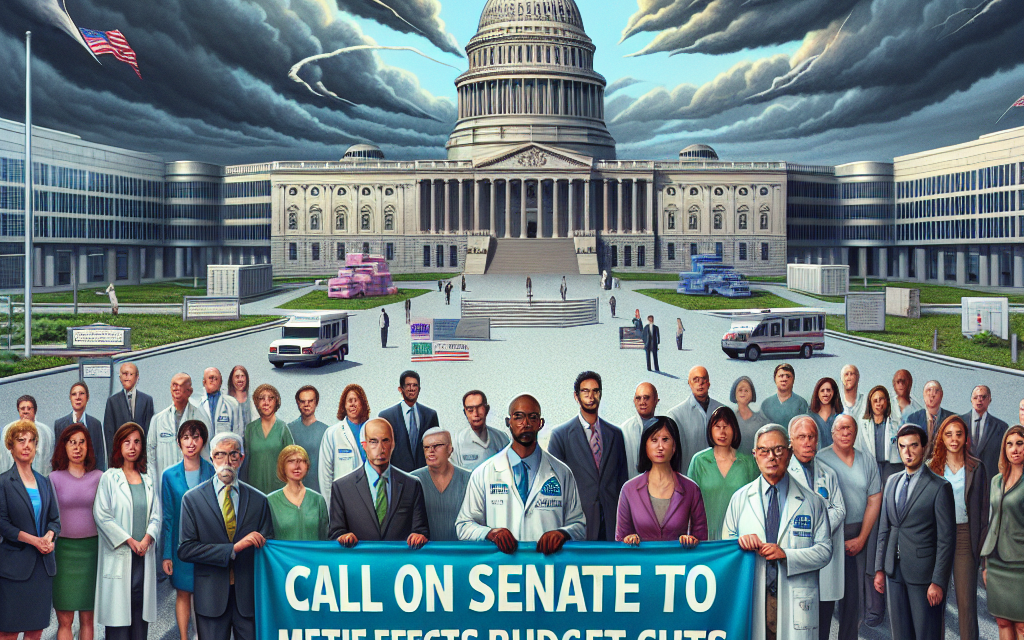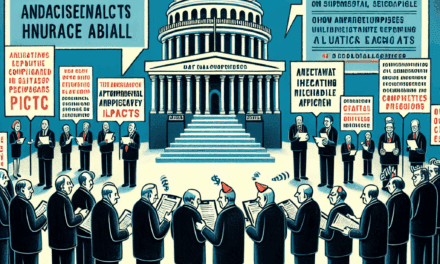Biotech Leaders Call on Senate to Mitigate Effects of FDA Budget Cuts
The biotechnology sector has been a cornerstone of innovation in healthcare, agriculture, and environmental sustainability. However, recent budget cuts to the Food and Drug Administration (FDA) have raised alarms among biotech leaders who argue that these reductions could stifle innovation and compromise public health. This article delves into the implications of FDA budget cuts, the responses from biotech leaders, and the potential consequences for the industry and society at large.
The Role of the FDA in Biotech Innovation
The FDA plays a critical role in ensuring the safety and efficacy of new drugs, biologics, and medical devices. Its rigorous approval process is designed to protect public health while fostering innovation. The agency’s responsibilities include:
- Reviewing clinical trial data to assess safety and efficacy.
- Regulating manufacturing practices to ensure product quality.
- Monitoring post-market safety through adverse event reporting.
- Facilitating the development of breakthrough therapies through expedited review pathways.
In recent years, the FDA has been instrumental in accelerating the approval of life-saving therapies, particularly during public health emergencies like the COVID-19 pandemic. The agency’s ability to adapt and respond to emerging health threats is largely dependent on its funding and resources.
However, budget cuts threaten to undermine these essential functions. The FDA’s budget is primarily funded through a combination of congressional appropriations and user fees paid by the pharmaceutical and biotech industries. When budget cuts occur, the agency may be forced to reduce staff, limit resources for clinical trial reviews, and slow down the approval process for new therapies.
Impact of Budget Cuts on Drug Development
Biotech leaders have expressed concern that FDA budget cuts will lead to significant delays in drug development and approval processes. The implications of these delays can be far-reaching:
- Increased Time to Market: With fewer resources, the FDA may take longer to review applications, delaying the time it takes for new therapies to reach patients.
- Higher Costs: Delays in approval can lead to increased costs for biotech companies, which may ultimately be passed on to consumers.
- Reduced Innovation: A slower approval process may discourage investment in new drug development, particularly for high-risk projects that require significant upfront capital.
For instance, a study by the Tufts Center for the Study of Drug Development found that the average cost to develop a new drug has risen to approximately $2.6 billion, with the time to market averaging around 10 years. Any additional delays caused by budget cuts could exacerbate these challenges, making it even more difficult for biotech companies to bring innovative therapies to market.
Moreover, the impact of budget cuts is not uniform across all therapeutic areas. For example, rare diseases and conditions that affect smaller patient populations may be particularly vulnerable. These areas often require specialized expertise and resources, which may be deprioritized in a constrained budget environment. As a result, patients with rare diseases may face even longer wait times for potential treatments.
Biotech Leaders’ Responses and Advocacy Efforts
In response to the looming threat of FDA budget cuts, biotech leaders have mobilized to advocate for increased funding and support for the agency. Their efforts include:
- Public Statements: Industry leaders have issued public statements highlighting the importance of the FDA’s role in ensuring patient safety and fostering innovation.
- Lobbying Efforts: Biotech companies and industry associations have engaged in lobbying efforts to persuade lawmakers to prioritize FDA funding in the federal budget.
- Collaboration with Patient Advocacy Groups: Biotech leaders are partnering with patient advocacy organizations to amplify their message and emphasize the potential consequences of budget cuts on patient access to therapies.
For example, the Biotechnology Innovation Organization (BIO) has been at the forefront of these advocacy efforts. In a recent letter to Senate leaders, BIO emphasized that “the FDA’s ability to protect public health and promote innovation is directly tied to its funding.” The organization has called for a bipartisan commitment to ensuring that the FDA has the resources it needs to fulfill its mission.
Additionally, biotech leaders have highlighted successful case studies where FDA support has led to rapid advancements in drug development. The approval of COVID-19 vaccines within a year of the virus’s emergence is a prime example of how a well-resourced FDA can respond effectively to public health crises. Such examples serve as powerful reminders of the importance of maintaining robust funding for the agency.
Potential Consequences for Public Health
The ramifications of FDA budget cuts extend beyond the biotech industry; they pose significant risks to public health. Some potential consequences include:
- Delayed Access to Life-Saving Therapies: Patients may experience longer wait times for critical treatments, particularly for conditions that require timely intervention.
- Increased Risk of Adverse Events: A reduced capacity for post-market surveillance may lead to undetected safety issues with approved products, putting patients at risk.
- Stagnation of Medical Advances: A slowdown in the approval process could hinder the development of innovative therapies that address unmet medical needs.
For instance, the approval of breakthrough therapies for conditions like cancer and rare genetic disorders has been made possible through the FDA’s commitment to expedited review processes. If budget cuts lead to a reduction in these expedited pathways, patients may miss out on potentially life-saving treatments.
Moreover, the COVID-19 pandemic has underscored the importance of a responsive FDA. The rapid development and approval of vaccines and therapeutics were made possible by the agency’s ability to mobilize resources quickly. A reduction in funding could hinder the FDA’s capacity to respond to future public health emergencies, leaving the nation vulnerable to emerging infectious diseases.
The Future of Biotech and FDA Funding
As the biotech industry continues to evolve, the relationship between the sector and the FDA will remain critical. The future of biotech innovation hinges on several factors:
- Investment in Research and Development: Continued investment in R&D is essential for driving innovation in the biotech sector. Companies must prioritize funding for projects that align with regulatory pathways.
- Collaboration with Regulatory Agencies: Biotech companies should engage in proactive dialogue with the FDA to understand regulatory expectations and streamline the approval process.
- Advocacy for Sustainable Funding: Industry leaders must continue to advocate for sustainable funding for the FDA to ensure that it can fulfill its mission effectively.
Looking ahead, the biotech industry must also adapt to changing regulatory landscapes and emerging technologies. The rise of personalized medicine, gene editing, and advanced therapies presents both opportunities and challenges. A well-funded FDA will be crucial in navigating these complexities and ensuring that innovative therapies are developed safely and effectively.
Conclusion
The call from biotech leaders for the Senate to mitigate the effects of FDA budget cuts is a critical issue that warrants attention. The FDA’s role in ensuring the safety and efficacy of new therapies is paramount, and any reduction in funding could have dire consequences for public health and innovation.
As the industry faces increasing challenges in drug development, it is essential for stakeholders to advocate for robust funding for the FDA. By doing so, they can help ensure that the agency remains equipped to protect public health while fostering an environment conducive to innovation.
In summary, the implications of FDA budget cuts extend far beyond the biotech industry; they pose significant risks to patient access to life-saving therapies and the overall advancement of medical science. The collaboration between biotech leaders, patient advocacy groups, and lawmakers will be crucial in securing the necessary resources for the FDA and safeguarding the future of healthcare innovation.





